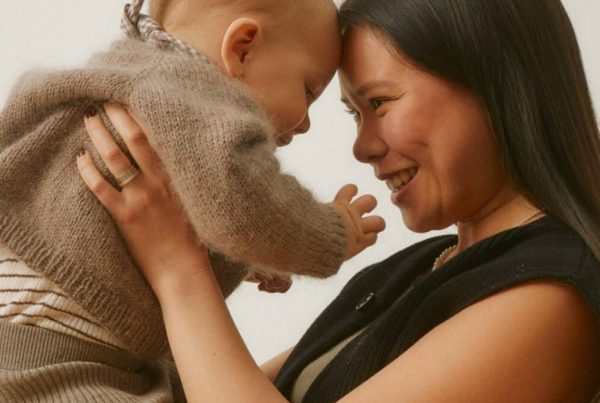Choosing Between Surrogacy and Adoption:
Surrogacy is expensive. Despite the prevalence of adoption, however, adoption is not necessarily “easier” than surrogacy nor is it always less costly. The adoption process can cost upwards of $70,000 with costs that include travel, hotels (some adoption agencies require longer-term stays), government fees/visas (if international), agency fees, psychiatric professionals, attorneys, and more. As with surrogacy, there are no guarantees with adoption, even after fees and expenses have been paid.
Nevertheless, a lot of folks considering surrogacy also consider adoption. Each has its own list of pros and cons, some of which are discussed below. At the end of the day, each person/family must decide what they are comfortable with based on individual preferences, ethics, and circumstances.
Adoption:
Pros:
- Existing children need homes. Many view the act of adopting children in need of homes as an act of altruism and humanity.
- Beneficial American adoption tax credit which is not available for surrogacy.
- No need for Reproductive Endocrinologist /IVF medications.
- Removes potential doubts about viability of pregnancy or the health of the carrier since the child(ren) is(are) already born.
Cons:
- Murky visibility into potential family-history red flags.
- Many adoptees speak out about adoption. This is a small, but very vocal minority. But contrast, there isn’t an equivalent in surrogacy – children of surrogacy do not speak out against the practice and most have very favorable opinions.
- The often-fielded question of “is adoption ethical”? Specifically, in many circumstances the birth parents would want to keep their biological child(ren), but economic or other hardships prevent them from doing so.
- In adoption, birth mother or birth parent can decide not to surrender parental rights, even after fees, including any medical expenses, and other financial arrangements have been paid. Gestational surrogates are not biologically related to the child and have no natural parental rights claims.
- In international adoption, birth mothers are sometimes coerced into surrendering parental rights. Even In domestic adoption, there’s not always birth parents who emphatically agree to give their child up for adoption and have mixed feelings including regret.
- Complicated families/trauma of birth mothers/parents and kids who may crave a relationship with these folks even where such a relationship is not in the best interest of the child. Adopted children might be curious as to why they “weren’t wanted” and struggle with adoption generally. Some adopted children struggle to bond with their adopted parents.
- Some adoption agencies engage in exploitative marketing practices including the appearance of treating children like commodities.
- Agencies can be anti-LGBTQ or prevent untraditional families from adopting.
Surrogacy:
Pros:
- More control over the individuals who are entering into the arrangement together. More direct screening is possible, especially with independent journeys.
- Less potential trauma for child vs. adoption which can inspire a lot of questions as to why they were put up for adoption.
- With gestational surrogacy, in most parts of the United States, no chance of a birth mother changing her mind and keeping the child even after all expenses and fees are paid.
- Less legal pitfalls generally. Surrogates enter into commercial surrogacy willingly, not because of an accidental pregnancy. They are required to be very educated on the process, including having their own legal counsel paid for by the intended parents.
- LGBTQ friendly.
- Surrogates in the United States are not coerced into becoming surrogates. They also do not enter into surrogacy because of economic distress as they must prove they are financially stable. Surrogates must also undergo a psych evaluation to determine if they are coming into surrogacy for the right reasons and understand the implications.
- Children born from surrogacy are almost-always (> 99% of the time) given to intended parents immediately upon birth. There is no evidence these children miss opportunities to bond with their parents. There is no evidence children born from surrogacy struggle to bond with their parents/caretakers despite what some surrogacy detractors (many of whom have fundamental religious or anti-LGBTQ reasons to oppose surrogacy) may claim.
Cons:
- Generally more expensive.
- A handful of states and most international locations make it extremely difficult to have children via a surrogacy arrangement.
- International Intended Parents may have extra hurdles, whereas adoption is generally legal everywhere.
- Requires the assistance of qualified medical professionals/IVF medications.
- Though very rare, a surrogate can engage in risky behavior during her pregnancy which puts the fetus and child at risk.
- Unknown risk of a fetus carrying genetic diseases and/or problems with fetus developing, esp. those that are not capable with life.
- Risk of more children than you expected (e.g. in the event of an embryo splitting).
Additionally, some adoption agencies, like some surrogacy agencies, aren’t always acting in the best interest of the parties involved. If you decide to use an agency as oppose to undergoing an independent journey, definitely consider interviewing several agencies. Independent adoption or independent surrogacy journeys can remove doubts about the ethics of the agency involved, however it’s extremely important whether you’re doing an independent journey or going through an agency to educate yourself on the process. Legal counsel can be invaluable in helping you decide.
If you are a surrogate or intended parent seeking potential surrogacy matches for an independent journey without a surrogacy agency, start here!









